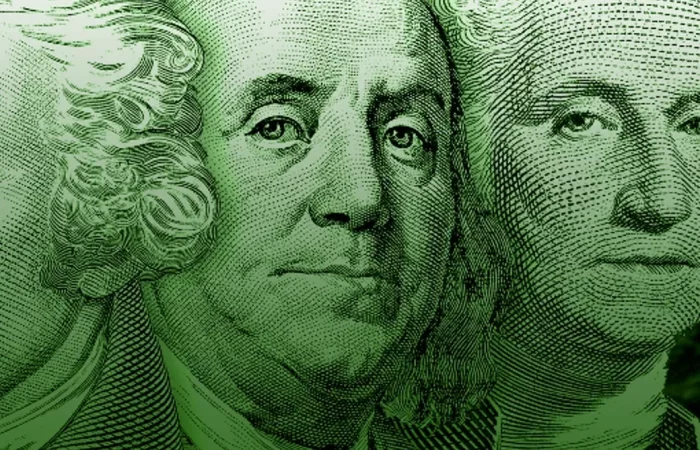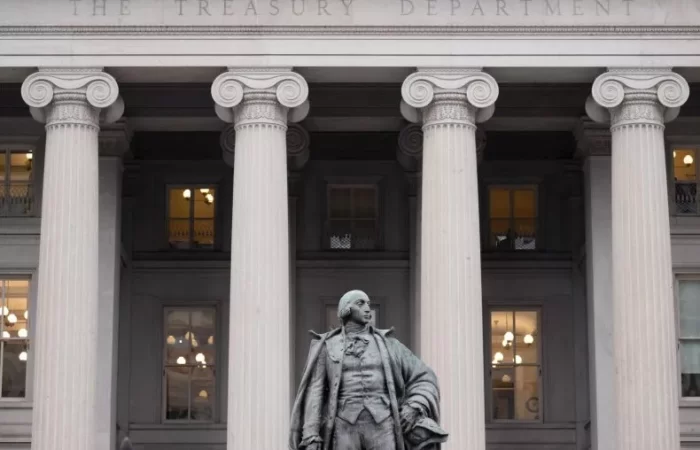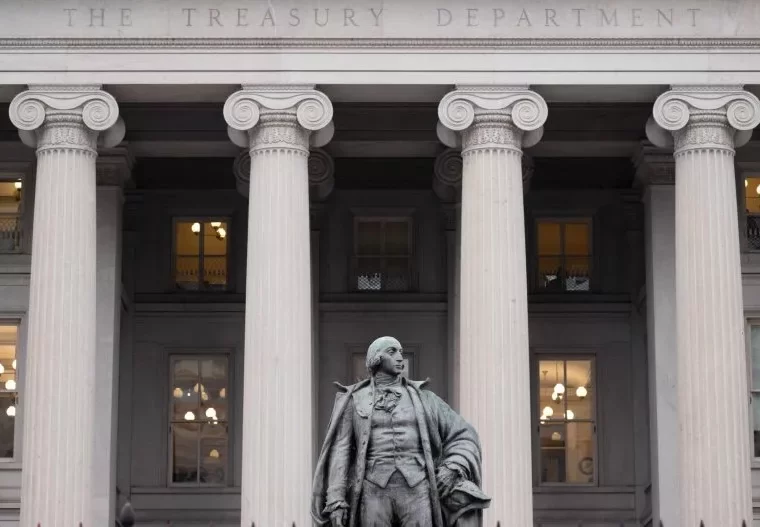However, such a move carries with it significant risks, including higher import costs, increased inflation, potential instability in global currency markets, and the risk of trade wars as countries face an influx of cheaper Chinese goods. Economists thus refer to this as a "nuclear option."

China sold a record amount of U.S. government bonds in the first quarter of 2024, according to U.S. Treasury data, continuing what many economists believe is a strategic shift away from dollar assets.
In the first three months of 2024, China sold $53.3 billion worth of U.S. Treasuries and agency bonds.
China’s actions come as it rapidly increases its purchases of gold and other commodities, part of a broader strategy to diversify its assets amid rising geopolitical tensions with the U.S. Observing the economic impact of sanctions on Russia following its 2022 invasion of Ukraine, some analysts say China aims to mitigate similar risks.
Craig Shapiro, a macro adviser to LaDuc Trading, identified three primary reasons for this trend.
“The handling of Russian reserves by the U.S. and other G7 countries, including threats of expropriations and sanctions, likely prompted China to reduce its exposure to U.S. treasury assets to avoid being similarly targeted,” we were informed.

Putting African Aspirations First
"If a simple adjustment is made for Treasuries held by offshore custodians like Belgium's (financial service provider) Euroclear, China's reported holdings of U.S. assets look to be basically stable at between $1.8 and $1.9 trillion," Setser wrote.

“China probably anticipates that U.S. interest rates will continue to rise due to persistent fiscal deficits, making it prudent to sell now rather than risk losses or repayment in devalued dollars,” he added. Selling these holdings could help China manage its domestic economy without risking the devaluation of the yuan.
China’s accumulation of raw materials extends to crude oil, where it remains the largest importer. In 2023, the country bought a record 11.3 million barrels per day, a 10 percent increase from 2022, driven by a surge in fuel demand after lifting pandemic restrictions.
Some economists have speculated that China’s commodity buying spree could signal a strategic weakening of its currency, the yuan. Devaluation could make Chinese exports cheaper and more competitive globally, appealing to China’s leadership amid a manufacturing surplus and low consumer confidence.
U.S. Federal Reserve Chair Jay Powell said this week the monetary authority was likely to maintain the federal funds interest rate of 5.25-5.50 percent, where it has remained since last July, longer than previously expected, due to persistent inflation.
Brad Setser, an economist at the New York City-based Council on Foreign Relations think tank, offered a different perspective in an article late last year.
He argued that the share of U.S. dollars in China’s reserves has been stable since 2015. He cited evidence suggesting the the dollar share in China’s reserves had since 2015 been generally stable.











